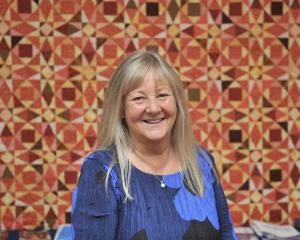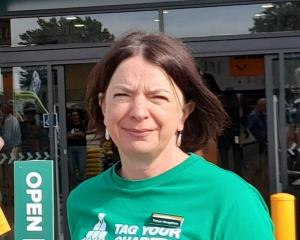
Councillors say the changes to takes from overallocated catchments have been ''coming for years'' and need to be for all of Otago, not just certain farmers.
At a council meeting in Dunedin yesterday a report on changes to the minimum flow-setting process on three catchments was discussed.
The council decided to incorporate the Manuherikia, Arrow and Upper Cardrona catchments into one plan change.
The minimum flow changes are meant to improve river health, and would require irrigators to restrict water takes at certain times of year.
Sheep and beef farmer Andrew Paterson, who lives near Omakau, said he recently had his driest 12 months in 70 years.
''The effect on myself personally was extreme stress during this period.''
The proposed minimum flow levels for the area would lead to farmers suffering serious mental health issues, he said
It would also result in a ''large swing'' to dairying in the valley, he said.
He favoured incremental increases in minimum flows.
The new plan change was meant to hasten the process, as the council battles with the historic 100-year-old water-take rights in these catchments which expire in 2021.
It would not speed up the process as it would end in legal intervention, Mr Paterson said.
Former regional councillor Gary Kelliher, who farms near Alexandra, said the Manuherikia River was heavily used for recreation and the community was its own watchdog for water quality.
He agreed it would force the area's farmers into dairy. High intensity dairy farming would be the only way to be viable.
Council chairman Stephen Woodhead said he understood the angst in the community, but changes had ''been coming for years''.
Debate about the flows themselves were better suited to later in the process, he said.
It was up to irrigators to work together, collect information and use it to inform the process, he said.
Council chief executive Sarah Gardner said she understood it was a ''difficult conversation''.
The proposed minimum flows were not finalised, she said.
Cr Bryan Scott said there was always going to be some angst from irrigators.
''No process is perfect. We tasked the CE [chief executive] with progressing these minimum flows as quickly as possible prior to 2021. We're doing our job.''
The council resolved to notify the public of the plan change once hydrology and cultural assessments were completed.
Comments
The only farmers suffering are the ones who are not farming within the sustainable capacity of their land. Things will get better when they are replaced by people who know what they are doing and who know how to operate within the limitations of the environment.
Nothing that is happening with the environment is new, it was obvious over 30 years ago that the climate was changing and that farming would get more precarious for anybody farming marginal land, 30 years is plenty of time to adapt. I don't recall seeing farmers protesting to get action on climate change, most of them vote for the deniers, and now they must reap the seeds they have sowed.
In a choice between the environment and farmers for water supply then we need the environment far more than we need a few incompetent farmers. Let them sign up fore the dole and live the high life that they have been claiming the unemployed live. This is called karma, no sympathy deserved.
"Recently had his driest 12 months in 70 years" An odd statement from a farmer who going by his photograph looks a very young 70. My experience with farming in Central Otago goes back to the 1950s. Drought has always been a part of the Central Otago scene and will continue to be with the rain shadow caused by the location of the Southern Alps.
This sounds a little bit like "If you stop us from drying up the rivers, we will pollute them or kill ourselves".
Is there an option to farm in an environmentally sustainable way? If not then a planned exit from farming in discussion with banks and family would be the best retreat option.














